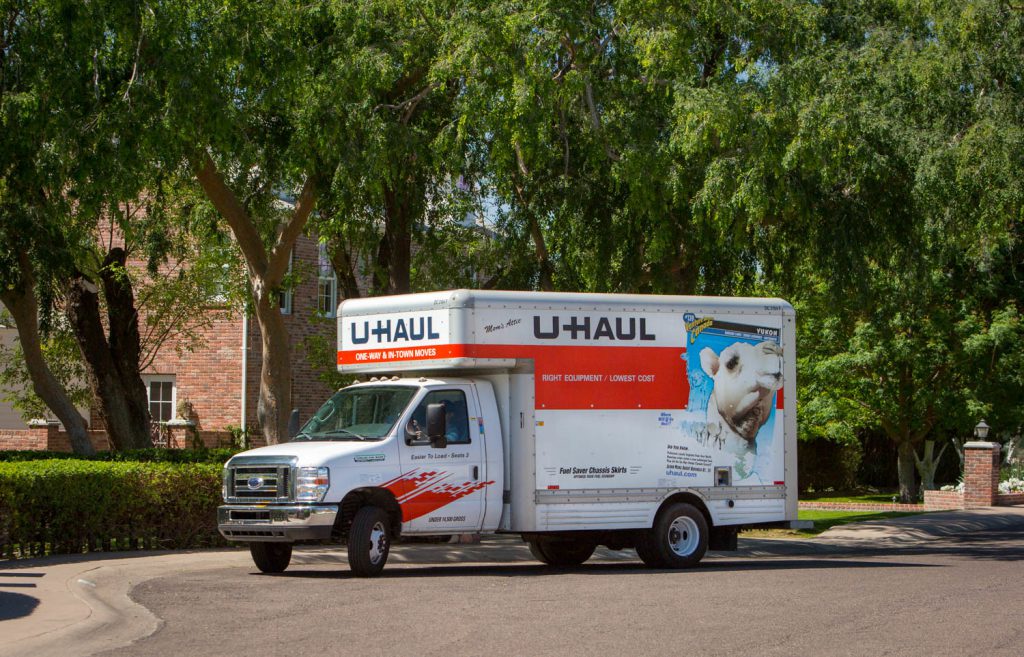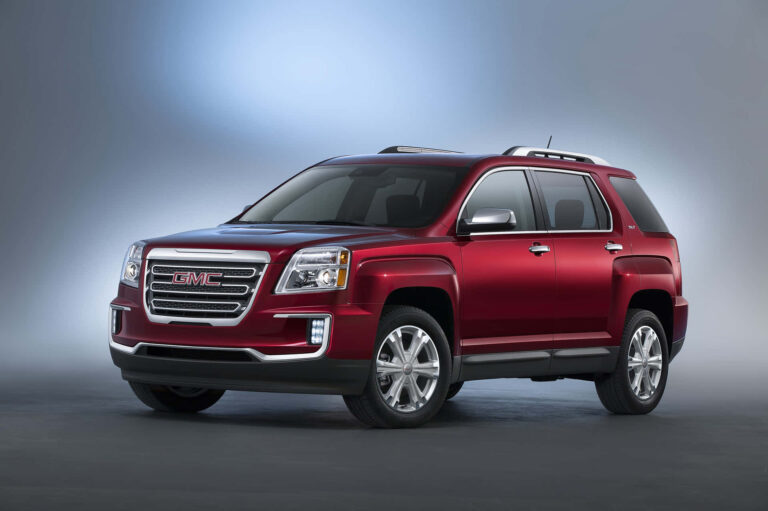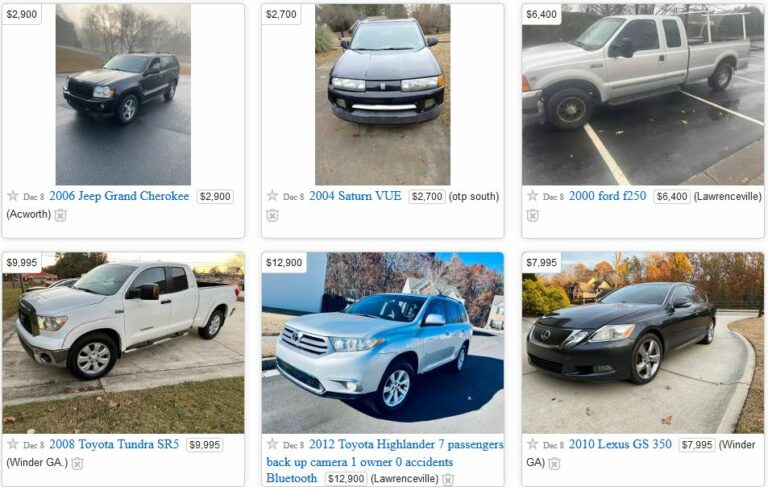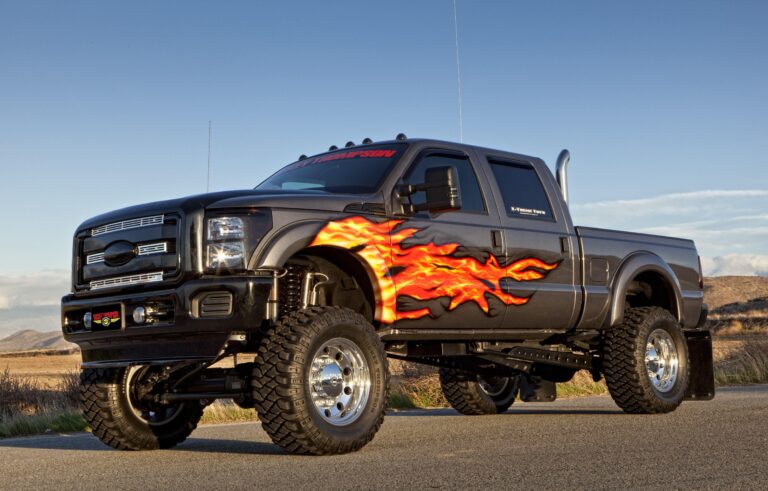U-Haul Trucks For Sale: Your Comprehensive Guide to Buying a Retired Workhorse
U-Haul Trucks For Sale: Your Comprehensive Guide to Buying a Retired Workhorse cars.truckstrend.com
In the vast landscape of used vehicles, certain categories stand out for their unique blend of utility, value, and storied past. Among these, "U-Haul Trucks For Sale" represents a distinctive niche, offering individuals and businesses the opportunity to acquire a robust, well-maintained, and incredibly versatile vehicle at a fraction of the cost of a new commercial truck. These aren’t just any used trucks; they are the workhorses that have facilitated countless moves, transported precious cargo, and served communities across North America. Understanding the ins and outs of purchasing one of these retired giants can unlock significant potential, whether you’re starting a new business, need a reliable utility vehicle, or are embarking on a creative conversion project.
This comprehensive guide will delve into every aspect of buying a used U-Haul truck, from understanding the sales program to navigating the purchasing process, exploring common uses, and addressing potential challenges. Our goal is to equip you with the knowledge needed to make an informed decision and find the perfect U-Haul truck to meet your needs.
U-Haul Trucks For Sale: Your Comprehensive Guide to Buying a Retired Workhorse
Why Buy a Used U-Haul Truck? Unpacking the Benefits
The decision to purchase a used U-Haul truck might seem unconventional to some, but it comes with a compelling set of advantages that make it a highly attractive option for a diverse range of buyers:
- Cost-Effectiveness: This is arguably the biggest draw. New box trucks or commercial vehicles can cost tens of thousands of dollars, placing them out of reach for many small businesses or individuals. Used U-Haul trucks, having already served their primary purpose, are typically sold at significantly lower price points, offering exceptional value per square foot of cargo space.
- Proven Reliability and Maintenance: U-Haul maintains one of the largest and most rigorously serviced fleets in the world. Their business model depends on their trucks being reliable, so they adhere to strict preventative maintenance schedules. While these trucks accumulate high mileage, they are consistently inspected, serviced, and repaired by qualified technicians throughout their operational life. This proactive maintenance often means a used U-Haul truck is mechanically sound despite its age or mileage.
- Standardized Design and Parts Availability: U-Haul primarily uses chassis from major manufacturers like Ford and General Motors. This standardization means that parts are readily available, and most mechanics are familiar with servicing these vehicles, making future repairs and maintenance straightforward and often more affordable.
- Versatility: From a basic moving truck to a mobile workshop, a food truck, an RV conversion, or a delivery vehicle, the box truck design offers an incredible blank canvas for various applications.
- No Commercial Driver’s License (CDL) Required (for most sizes): Most U-Haul box trucks (up to 26 feet) have a Gross Vehicle Weight Rating (GVWR) that allows them to be driven with a standard Class D driver’s license in most states, making them accessible to a broader range of buyers.
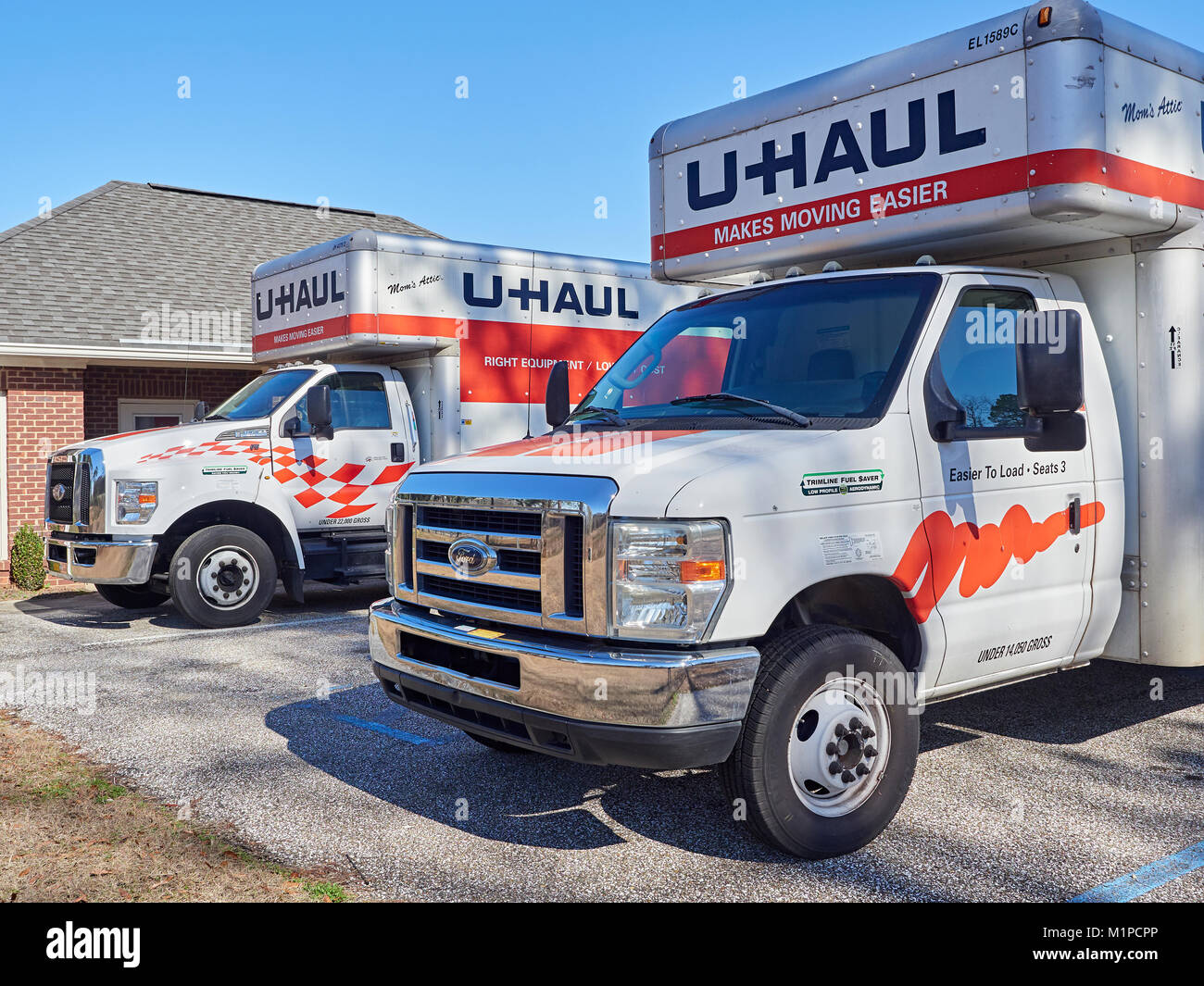
Understanding the U-Haul Sales Program: How They Sell Their Fleet
U-Haul operates a dedicated sales program for its retired fleet, known as U-Haul Truck Sales. This isn’t a casual, once-in-a-while event; it’s a continuous, organized process designed to cycle out older vehicles and introduce newer ones.
- Direct Sales Model: U-Haul sells directly to the public, cutting out intermediaries. This can translate to better pricing for the buyer.
- Online Inventory: The primary method for browsing available trucks is through the official U-Haul Truck Sales website. This online portal allows prospective buyers to search by location, truck size, price range, and even specific features. Inventory is updated regularly as trucks are retired from service.
- Physical Locations: While the online portal is key, some larger U-Haul centers or dedicated sales lots may have trucks physically on display for inspection. It’s always advisable to contact the listed sales representative for the truck you’re interested in to confirm its location and availability for viewing.
- "As-Is" Sales: It’s important to note that U-Haul trucks are typically sold "as-is, where-is," meaning there is no warranty provided. This underscores the importance of a thorough pre-purchase inspection.

Types of U-Haul Trucks Available for Sale
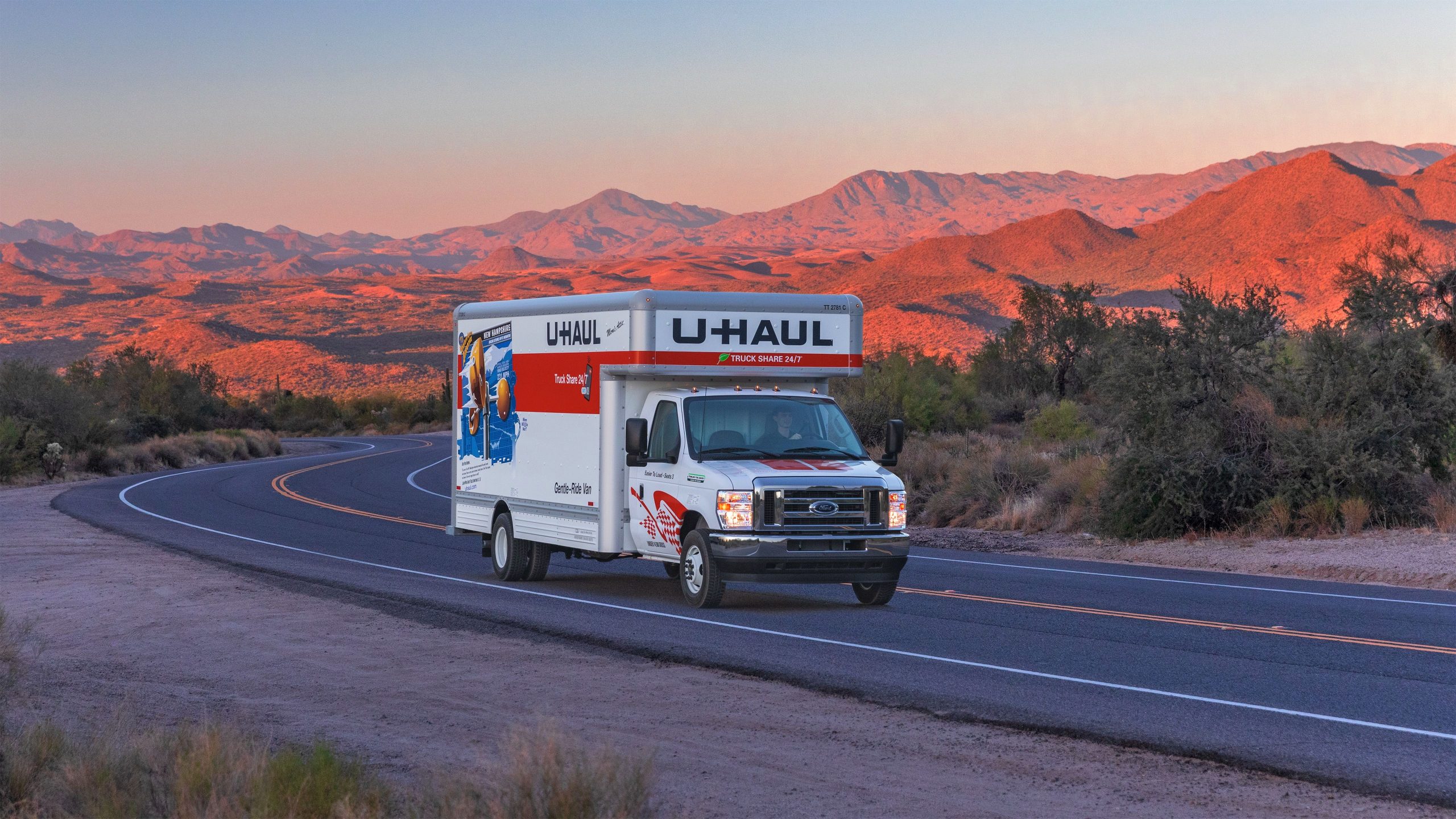
U-Haul’s fleet is diverse, and while the iconic orange box trucks are most common, other vehicle types may occasionally be available:
- Box Trucks (Most Common):
- 10-Foot Truck: Often built on a Ford F-Series cutaway chassis. Compact, easy to drive, ideal for small moves or local deliveries.
- 15-Foot Truck: A popular mid-size option, typically on a Ford or GM cutaway chassis. Good balance of maneuverability and cargo space.
- 17-Foot Truck: Slightly larger than the 15-foot, offering more volume.
- 20-Foot Truck: A large capacity option, suitable for multi-room moves or substantial cargo.
- 26-Foot Truck: The largest non-CDL box truck, designed for large households or commercial hauling. These often feature larger engines and more robust suspensions.
- Chassis: Primarily Ford E-series (E-350, E-450) and sometimes GM/Chevy Express cutaways. Engines are typically gasoline V8s (e.g., Ford Triton V8s, GM Vortec V8s).
- Pickup Trucks: Less frequently available, but U-Haul does operate a fleet of pickup trucks, usually Ford F-150s or similar, which are eventually sold off. These are generally very high mileage.
- Cargo Vans: Occasionally, smaller Ford Transit or similar cargo vans might be listed for sale.
- Trailers: While this article focuses on trucks, U-Haul also sells its used utility and car hauler trailers, which can be a cost-effective solution for specific towing needs.
Key Considerations Before Buying: Due Diligence is Paramount
Purchasing a used commercial vehicle, even one with a strong maintenance history, requires careful consideration.
- Condition and Maintenance History: While U-Haul trucks are well-maintained, they also endure heavy use and multiple drivers. Expect cosmetic wear and tear, dings, and scratches. Focus on the mechanical condition. Ask about recent major repairs if possible, though detailed service records for individual units are rarely provided to buyers.
- Mileage and Age: U-Haul trucks are retired based on age and/or mileage. Most trucks for sale will have high mileage (often well over 150,000 miles, sometimes exceeding 250,000 or 300,000 miles). Don’t let high mileage deter you entirely, but it should prompt a more rigorous inspection of the drivetrain, suspension, and steering components.
- Engine and Transmission: These are the heart of the truck. Listen for unusual noises, check for fluid leaks, and observe shifting patterns during a test drive. The gasoline V8 engines used by Ford and GM are generally robust but have specific common issues to research (e.g., spark plug issues on older Ford Tritons).
- Payload and GVWR: Understand the truck’s Gross Vehicle Weight Rating (GVWR) and payload capacity. This is crucial for ensuring the truck can safely carry your intended load. The GVWR is the maximum operating weight of the truck, including the vehicle itself, fuel, passengers, and cargo.
- Fuel Type: The vast majority of U-Haul trucks are gasoline-powered. This is an advantage for most private buyers due to lower fuel costs per gallon and easier maintenance compared to diesel, though diesel offers better fuel economy and torque.
- Rust and Body Damage: Inspect the frame, suspension components, and the underside of the box for significant rust, especially if the truck operated in regions with harsh winters and road salt. Check for signs of significant collision repair that might affect structural integrity.
- Tires and Brakes: These are wear items. Assess the tire tread depth and check for uneven wear. Test the brakes for responsiveness and any pulling or grinding.
- Title and Registration: U-Haul trucks are titled as commercial vehicles. Ensure you understand the requirements for registering a commercial vehicle in your state, even if for personal use.
Practical Advice: Always, always, always get a pre-purchase inspection by an independent, qualified mechanic. This is the single most important piece of advice when buying an "as-is" vehicle, especially a high-mileage commercial truck. A mechanic can identify potential issues that aren’t obvious to the untrained eye, saving you significant money and headaches down the road.
The Buying Process: A Step-by-Step Guide
Navigating the purchase of a used U-Haul truck is straightforward once you know the steps:
- Research Available Inventory: Start by regularly checking the official U-Haul Truck Sales website (trucksales.uhaul.com). Filter by your desired location, truck size, and price range. Pay attention to the listed mileage, engine type, and any noted features.
- Contact U-Haul Sales: Once you’ve identified a truck of interest, contact the U-Haul sales representative listed for that specific vehicle. They can confirm availability, answer initial questions, and provide details on how to view the truck.
- Schedule an Inspection and Test Drive: Arrange a time to physically inspect the truck. Take your time to walk around it, check the interior, open the cargo box, and look underneath. A test drive is crucial to assess the engine, transmission, steering, brakes, and suspension. If possible, bring your mechanic for the pre-purchase inspection during this visit.
- Review Documentation: Confirm the truck’s VIN (Vehicle Identification Number) matches the listing. While detailed service records aren’t usually available, ensure the title is clear and ready for transfer.
- Negotiation (Limited): While U-Haul prices are often firm, there might be limited room for negotiation, especially if the truck has specific cosmetic flaws or a minor mechanical issue identified by your inspection. It never hurts to ask, but don’t expect deep discounts.
- Financing Options: U-Haul typically requires full payment upfront. If you need financing, you’ll generally have to arrange it independently through a bank, credit union, or personal loan.
- Complete the Sale: Once satisfied, you’ll complete the paperwork, make payment, and receive the title. Be prepared to arrange for transport or drive the truck away.
- Post-Purchase Considerations:
- Insurance: Secure appropriate insurance coverage for your intended use (personal or commercial).
- Registration: Register the truck with your state’s DMV.
- Initial Maintenance: Even if the pre-purchase inspection was good, consider a full fluid change (oil, transmission fluid, differential fluid, coolant), new filters, and a thorough brake inspection as a baseline for your ownership.
Common Uses for a Used U-Haul Truck
The versatility of a used U-Haul box truck makes it suitable for a multitude of applications:
- Small Business Operations: Ideal for delivery services, landscaping, construction, junk removal, furniture delivery, or mobile repair services.
- Mobile Workshops/Tool Trucks: The large cargo area can be customized with shelving, workbenches, and power outlets to create a fully functional mobile workshop for tradespeople.
- Food Trucks/Mobile Businesses: With proper modifications, these trucks can be transformed into popular food trucks, mobile boutiques, barbershops, or other service-oriented businesses.
- RV/Camper Conversions: The "box on wheels" design is perfect for DIY RV conversions, offering a spacious interior that can be customized into a unique tiny home or adventure vehicle.
- Farm Use: Hauling feed, equipment, or produce around a farm.
- Personal Large Item Transport: Perfect for individuals who frequently need to move large items, furniture, or construction materials for personal projects.
- Emergency Storage/Mobile Command Centers: Can be adapted for disaster relief, mobile clinics, or storage for emergency equipment.
Potential Challenges and Solutions
While buying a used U-Haul truck offers many benefits, it’s wise to be aware of potential challenges:
- High Mileage:
- Challenge: Trucks have accumulated significant miles, leading to concerns about remaining lifespan.
- Solution: Focus on maintenance history (even if generalized), prioritize a thorough pre-purchase inspection, and understand that well-maintained high-mileage vehicles can still have plenty of life left.
- Cosmetic Imperfections:
- Challenge: Dings, dents, scratches, and worn interiors are common.
- Solution: Look past the aesthetics if the mechanicals are sound. Cosmetic repairs are usually secondary and can be addressed over time or left as-is if purely functional.
- No Warranty:
- Challenge: Purchased "as-is," meaning no recourse if issues arise after purchase.
- Solution: The pre-purchase inspection is your only safeguard. Factor in a contingency budget for unexpected repairs in the first few months.
- Finding the Right Truck:
- Challenge: Specific sizes or models might not always be available in your immediate area.
- Solution: Be patient and check the U-Haul Truck Sales website regularly. Be prepared to travel a bit further to pick up the ideal truck.
- Commercial Vehicle Requirements:
- Challenge: Even for personal use, the truck is titled commercially, which can mean different insurance rates, registration fees, or inspection requirements depending on your state.
- Solution: Research your local DMV and insurance regulations before buying to understand any additional costs or steps.
Representative Price Table for U-Haul Trucks For Sale
It’s crucial to understand that actual prices for U-Haul trucks vary significantly based on location, age, mileage, overall condition, and demand. The table below provides a representative estimate of what you might expect to pay, but these are not fixed prices. Always refer to the official U-Haul Truck Sales website for current inventory and pricing.
| Truck Size (Approx.) | Typical Year Range | Estimated Price Range (USD) | Key Factors Influencing Price |
|---|---|---|---|
| 10-Foot Box Truck | 2008 – 2016 | $3,000 – $7,000 | Mileage (typically 150k-250k+), engine condition, overall wear. |
| 15-Foot Box Truck | 2008 – 2015 | $4,000 – $9,000 | Mileage (typically 175k-300k+), mechanical condition, market demand. |
| 17-Foot Box Truck | 2008 – 2015 | $5,000 – $10,000 | Similar to 15ft, often slightly higher due to increased capacity. |
| 20-Foot Box Truck | 2007 – 2014 | $6,000 – $12,000 | Mileage (typically 200k-350k+), engine health, transmission. |
| 26-Foot Box Truck | 2007 – 2014 | $7,000 – $15,000+ | Highest mileage (250k-400k+), engine type, chassis condition, specific features (e.g., ramp, liftgate). |
| Pickup Truck | 2008 – 2014 | $4,000 – $8,000 | High mileage (often 200k-350k+), bed condition, cab type. |
| Cargo Van | 2008 – 2015 | $3,500 – $8,000 | Mileage, interior condition, engine type. |
Disclaimer: These prices are rough estimates. A meticulously maintained truck with lower-than-average mileage for its age might fetch a higher price, while a truck with known issues or significant cosmetic damage could be on the lower end. Always verify current pricing on the U-Haul Truck Sales website.
Frequently Asked Questions (FAQ) about U-Haul Trucks For Sale
Q1: Are U-Haul trucks reliable despite their high mileage?
A1: Generally, yes. U-Haul has a stringent maintenance program. While they have high mileage, they are consistently serviced. However, a pre-purchase inspection by an independent mechanic is always recommended to assess the specific vehicle’s condition.
Q2: Do U-Haul trucks come with a warranty?
A2: No, U-Haul trucks are typically sold "as-is, where-is," without any warranty. This is why a thorough inspection is critical.
Q3: Can I finance a used U-Haul truck?
A3: U-Haul itself generally requires full payment upfront. You would need to secure your own financing through a bank, credit union, or personal loan.
Q4: How often does U-Haul sell trucks?
A4: U-Haul continuously cycles its fleet. New trucks become available for sale regularly, so checking their sales website frequently is recommended.
Q5: Where can I see U-Haul trucks for sale?
A5: The primary place is the official U-Haul Truck Sales website (trucksales.uhaul.com). Some larger U-Haul centers or dedicated sales lots may also have vehicles on site for viewing.
Q6: Are U-Haul trucks gas or diesel?
A6: The vast majority of U-Haul box trucks for sale are gasoline-powered, typically using Ford Triton or GM Vortec V8 engines. Diesel options are rare.
Q7: What’s the typical mileage on a used U-Haul?
A7: Expect high mileage. Most trucks will have well over 150,000 miles, with many exceeding 250,000 or even 300,000 miles.
Q8: Can I convert a U-Haul truck into an RV or food truck?
A8: Absolutely! U-Haul box trucks are popular choices for DIY RV/camper conversions and food truck builds due to their spacious, rectangular cargo area and sturdy chassis.
Q9: What kind of title do they come with?
A9: U-Haul trucks are sold with clear titles, typically registered as commercial vehicles. You will need to transfer the title and register it in your name according to your state’s DMV requirements.
Concluding Thoughts
The market for "U-Haul Trucks For Sale" offers a unique and valuable opportunity for those seeking a robust, high-capacity vehicle without the steep price tag of a new commercial truck. While these vehicles come with high mileage and cosmetic wear, their history of consistent maintenance by U-Haul often means they are mechanically sound workhorses ready for a second life.
By understanding the sales process, knowing what to look for during inspection, and performing thorough due diligence (especially the pre-purchase inspection), you can confidently acquire a U-Haul truck that serves your business, personal, or creative needs for years to come. These retired movers are more than just trucks; they’re blank canvases for entrepreneurship, adventure, and practical utility, offering unparalleled value in the used vehicle market.
